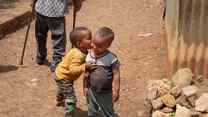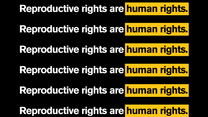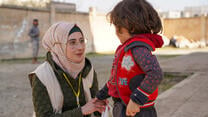WHO WE ARE
The mission of the International Rescue Committee (IRC) is to help people whose lives and livelihoods are shattered by conflict and disaster to survive, recover and gain control of their future. Our vision is that the IRC will lead the humanitarian field by implementing high-impact, cost-effective programs for people affected by crisis, and shape global policy and practice by sharing our learning and experience with others.
All IRC programs are designed to achieve meaningful change in people’s health, safety, education, economic wellbeing and ability to influence the decisions that affect their lives.
As part of this mission, the IRC is dedicated to helping people affected by conflict access mental health and psychosocial support. We work to ensure that people can receive care and manage treatment for themselves and their families, from the earliest stages of crisis through recovery. But making services available is not enough.
The IRC works to create enabling environments for mental well-being and healing. This includes demystifying beliefs that perpetuate stigma and finding leaders in communities to identify culturally appropriate solutions. We also provide community members with the information they need to support the mental health and well-being of others.
WHY OUR WORK MATTERS
Nearly 80 million people worldwide are affected by conflict and displacement. At the same time, many people around the world are living with a mental health condition. Conflict and forced migration have a profoundly negative impact on mental health and wellbeing, and unsurprisingly, mental disorders tend to double in the acute phase of an emergency. For many of them, mental health and psychosocial services are scarcely available. In fact, globally, only 1% of the health workforce are mental health workers.
Ignoring mental health can have profound consequences on a person’s ability to regain control of their lives after conflict and displacement
WHAT WE DO
The IRC is committed to bringing mental health out of the shadows and making it more visible and supported across humanitarian crises. We do this through several core strategies and interventions:
Integrating mental health to primary health care
We are committed to addressing the mental health treatment gap by integrating mental health into primary health care within all countries where we implement health programs by adopting evidence based interventions and adapting them to the local context. This includes including providing pharmacological and/ or non-pharmacological care for common and severe conditions ranging from depression and anxiety to psychosis and bipolar disorder. Through primary health care programs, the IRC provides individual and group counselling, psychosocial support groups, and basic psychoeducation through health education sessions.
A commitment to quality
The IRC’s approach to mental health is guided by a global mental health evidence base for implementing high-quality, strengths-based programming aimed at improving the mental health and wellbeing of individuals and families while doing no harm. Key interventions include the World Health Organization Mental Health Gap Action Programme (mhGAP), scalable psychological interventions and community-based mental health services and advocacy. The IRC is deeply committed to increasing access and quality of services along with taking measures to ensure that the delivery of mental health care is adapted to the context, culturally sensitive and responsive to client needs.
Scalable psychological interventions
There are a range of evidence-based, scalable, psychological interventions that can be delivered by non-specialists like midwives, nurses, social workers and community health workers to help people experiencing disabling stress, depression and anxiety. These are modified versions of existing evidence-based psychological treatments that are simplified to be rolled out by providers without formal academic training in mental health and can be used within humanitarian and fragile settings to reach more people, in places where there are not enough clinical staff to meet the growing need. This directly aligns with the IRC’s greater vision for strong primary health care delivered directly in the communities where people live.
Destigmatizing mental health
Through outreach services the IRC encourages people to actively seek out help when they recognize that they, or members of their family, are unwell. Through household visits, psychoeducation sessions run by community volunteers and discussions of mental health concerns during routine health visits, the IRC works to change the narrative about mental health services and the stigma associated with them.



